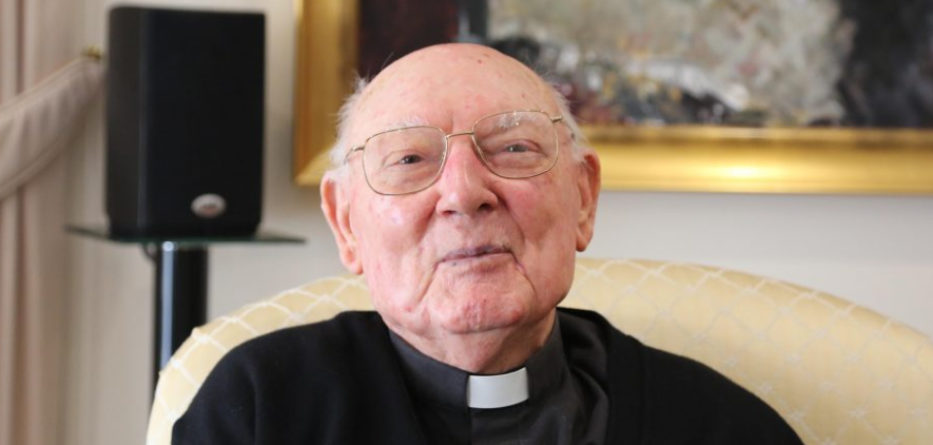Cardinal Edward Idris Cassidy, whose funeral will be held at St Mary’s Cathedral in Sydney on Monday, had a reputation for being down to earth, with a no-nonsense style that earned him respect and affection. But no one was ever left in doubt that he had a formidable intellect and immense diplomatic skill.
He had a lifetime of service and achievement, and his appointment by Pope John Paul II to the position of president of the Holy See’s Commission for Religious Relations with the Jews was an inspired decision that proved to be of immense benefit to the Vatican and to Jewish-Christian relations.
It is an understatement that he came to that position at a time of lingering distrust, a degree of confrontation and a series of unresolved issues.
Nostra Aetate, the Second Vatican Council’s Declaration on the Relation of the Church with Non-Christian Religions, issued in October 1965, had revolutionised the relationship between Catholicism and Judaism.
It set out, in a brief and simple paragraph, guidelines for how Jews were to be considered by Catholics, after two millennia of supersessionism and allegations of deicide, disrespect and contempt.
In the words of Pope Francis, on the 50th anniversary of Nostra Aetate, it “represents a definitive ‘yes’ to the Jewish roots of Christianity and an irrevocable ‘no’ to anti-Semitism”. It reversed centuries and centuries of negative standard Christian presuppositions and teachings about Jews.
Read the article by Jeremy Jones in The Australian.

